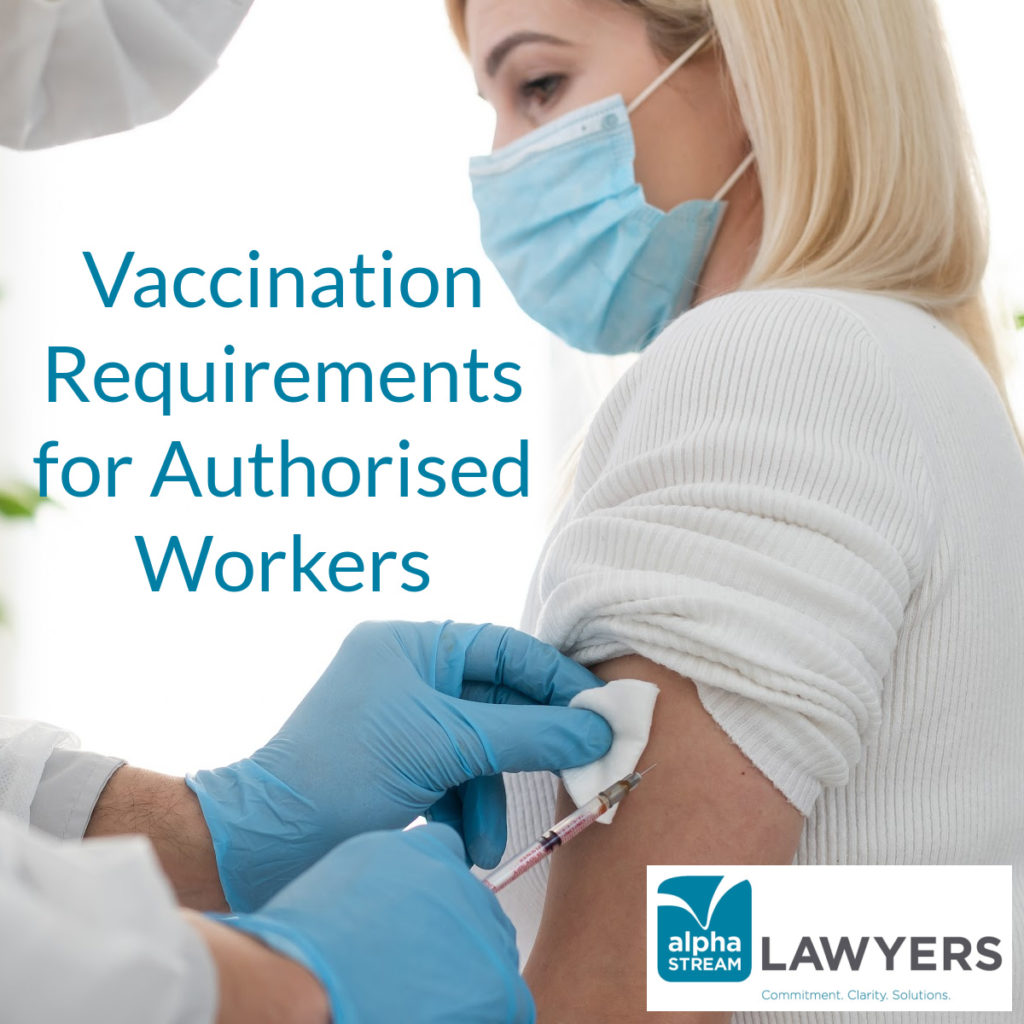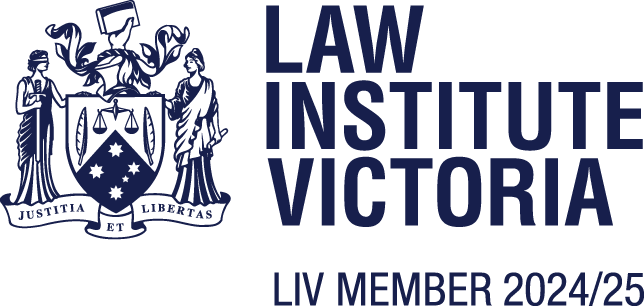
As you are probably aware, the Victorian Government had announced that all workers (in Melbourne and regional Victoria) on the Authorised Workers List would be required to have their first COVID-19 vaccination dose by 15 October 2021 to continue working on site. The deadline for the first dose has now been extended to 22 October 2021. All authorised workers must have had their second dose of the COVID-19 vaccine by 26 November 2021.
Under the latest COVID-19 Mandatory Vaccination (Workers) Directions (No.3), (“the Directions”) employers are required to as soon as reasonably practicable notify each worker, who is or may be, scheduled to work outside the worker’s ordinary place of residence on or after 15 October 2021 that:
- Clause 4 of the Directions obliges the employer to collect, record and hold vaccination information about the worker; and
- Subclause (1) obliges the employer, on and after 15 October 2021, not to permit a worker who is unvaccinated to work for that employer outside the worker’s ordinary place of residence unless an exception applies under the Directions.
If your employees are not working from home and arrive at work on or after 22 October 2021 and they do not have proof of having been vaccinated, you must send your employees home because it would be unlawful for you to have unvaccinated staff members on site. In these circumstances, you may need to stand down unvaccinated staff members if certain criteria are met.
Please see below for further information regarding stand downs.
Responsibilities for employers regarding employee vaccination records
Vaccination Information
Importantly, if a worker is, or may be, scheduled to work outside the worker’s ordinary place of residence on or after 15 October 2021, the employer of the worker must collect, record and hold vaccination information about the worker.
“Vaccination information” is information about a person’s vaccination status and includes information that is derived from a record of information that was made under, or in accordance with, the Australian Immunisation Register Act 2015 of the Commonwealth.
Partially vaccinated workers
If an employer collects information that a worker is partially vaccinated, the employer must also collect, record and hold information about whether that worker has a booking to receive, by the second dose deadline (26 November 2021), a dose of a COVID-19 vaccine that will cause the worker to become fully vaccinated.
Unvaccinated workers
If an employer collects information that a worker is unvaccinated, the employer must also collect, record and hold information about whether that worker has a booking to receive, by the first dose deadline (22 October 2021), a dose of a COVID-19 vaccine that will cause the worker to become partially vaccinated.
An employer must comply with the obligations as soon as reasonably practicable after the commencement of these directions on 15 October 2021.
The above obligations do not apply if the employer already holds vaccination information about a worker who is, or may be, scheduled to work outside the worker’s ordinary place of residence on or after the relevant date.
Exceptions
An employer may permit an unvaccinated person to work for the employer outside the worker’s ordinary place of residence in some circumstances under clauses 5 or 6 including (but not limited to):
- If between 15 October and 22 October 2021, the worker has a booking to receive a dose of COVID-19 vaccine by the first dose deadline (22 October 2021) that will cause the worker to become partially vaccinated;
- If there are exceptional circumstances, relating to an emergency situation or essential work for health and safety purposes.
There is a limited exception for “excepted persons” – a worker who holds a medical certificate from a medical practitioner that the worker is unable:
- due to a medical contraindication, to receive a dose or a further dose of a COVID-19 vaccine; or
- to receive a COVID-19 vaccine due to an acute medical illness including COVID.
Penalties
The Directions impose significant penalties for the following:
- Refusing or failing to comply with a direction – penalties of approximately $22,000 for natural persons and $109,000 for corporations;
- Providing information, making a statement or producing a document that is false or misleading – penalties of approximately $11,000 for natural persons and $54,500 for corporations;
- Making an entry in a document required to be kept by the Public Health and Wellbeing Act 2008 (Vic) or the regulations that is false or misleading – penalties of approximately $11,000 for natural persons and $54,500 for corporations.
What if employees do not comply with the Directions to get vaccinated?
Stand Downs
Employers may be able to stand their employees down during the coronavirus outbreak for various reasons. This includes when:
- the business has closed because of an enforceable government direction (which means the employee can’t be usefully employed, even from another location)
- there is a stoppage of work due to lack of supply for which the employer can’t be held responsible.
If there is an enforceable government direction that prevents an employee from working, an employer does not have to pay an employee.
For example, this could occur where an enforceable government direction:
- prevents a particular employee from working because they are required to self-isolate or have not met a requirement to get vaccinated or tested for COVID-19; or
- requires an employer to close down a work site or reduce staffing levels, and employees can’t work remotely.
In these cases, the employer is not required to pay the employee, unless the employee takes paid leave.
Before standing down their employees, employers should carefully consider all options including:
- Alternative working arrangements – such as working from home which should be discussed with employees
- Temporarily changing duties, hours of work or rosters – if this means an employee can keep working. Employers must check the rules under the applicable award or agreement, and the employee’s employment contract and any relevant workplace policies. Employers usually need to consult with their employees about these types of changes.
- Accessing paid or unpaid leave – This includes:
- taking accrued annual leave (including at half pay)
- taking any other paid leave (such as long service leave or paid leave available under an award, enterprise agreement or employment contract)
- directing employees to take accrued annual leave in certain circumstances
- taking any other paid leave by agreement between the employee and the employer.
- Some awards provide for 2 weeks’ unpaid pandemic leave and allow employees to take twice as much annual leave at half their normal pay if their employer agrees.
If an employee refuses to get vaccinated can employers take disciplinary action?
Yes, if the employee’s refusal is in breach of:
- a lawful and reasonable direction requiring vaccination; or
- a specific law;
an employer may be able to take disciplinary action, including termination of employment, against an employee for refusing to be vaccinated.
However, before taking any action, an employer should discuss with the employee their reasons for not wanting to get vaccinated. For instance, the employee may have a medical condition which may prevent them from being vaccinated.
To determine whether disciplinary action can be taken, employers should consider the terms, obligations and rights under any applicable public health orders, enterprise agreements, awards, employment contracts or workplace policies.
Employees have various protections against being dismissed or treated adversely in their employment. When dismissing an employee, employers should ensure that they follow fair and appropriate procedures. For instance, a written warning notice should be issued to an employee with an opportunity to rectify the issue regarding their failure to comply with the Direction to be vaccinated, before further action is taken to dismiss the employee.
Employers should ensure they have a valid reason to terminate an employee, otherwise they may contravene unfair dismissal or adverse action laws under the Fair Work Act.
If you have any questions or would like advice on your situation, please call us on 03 9548 5500.




No comments yet.